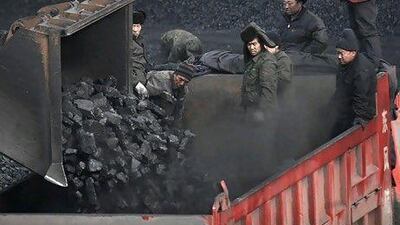They seem destined to dominate the world economy. For two of them, their growth is fuelled by oil and gas exports; for the other two, their rampant demand strains global energy markets. Yet as the Bric concept celebrates its 10th birthday, Brazil, Russia, China and India may each find that energy is its Achilles heel.
Building Brics Emerging giants
Keep pace with the emerging economic powerhouses Brazil, Russia, India, China and South Africa Learn more
More than its peers, China has dominated world energy markets over the past decade. Its surging energy use drove oil prices to record highs in 2008 and again this year, despite recession elsewhere. By 2020, if not earlier, it will overtake the US and EU to become the world's largest oil importer. It is already the biggest energy consumer and uses half of the world's coal.
This has come at heavy cost. With coal pollution blanketing Chinese cities, the rate of lung cancer in Beijing has increased by 60 per cent since 2000, and levels of dangerous particles are 10 times higher than World Health Organization guidelines.
China's clumsy and aggressive diplomacy has stymied hydrocarbon development in disputed parts of the South China Sea, pushing neighbours such as Vietnam into the arms of the US. But China has the chance to replicate the US boom in gas from shales, making it self-sufficient in this clean-burning fuel.
India is in the weakest energy position of all the Bric nations. Although it has major coal resources, its petroleum production is limited.
An import dependency similar to China's, and political problems with Pakistan, Afghanistan and Iran have so far prevented India from securing pipelines from the Gulf or Central Asia.
India also suffers from pollution, the "Asian brown cloud" from burning coal and wood, that hovers over the country in winter, weakening the monsoon, increasing melting of Himalayan glaciers and contributing to the deaths of more than 2 million Indians each year.
Yet India's renewable energy sector is, after a slow start, now advancing promisingly, with the fifth-largest wind power capacity in the world.
By contrast, Russia is an energy superpower: the world's largest producer of oil, the leading gas exporter and a major supplier of coal and uranium. Its geography allows it to control exports from Central Asia, to supply both Europe and China, and hence to exert political leverage over the EU. After its 1998 debt default, the economy grew at 7 per cent annually.
Moscow would thus appear to be in an enviable position. But the cushion of easy oil revenues has been used to prop up inefficient enterprises and Potemkin village-style showpieces rather than revitalising Russia's crumbling Soviet-era infrastructure. As in the 1970s, it has slipped into comfortable stagnation rather than making real reforms. Remarkably, it ranks below even Nigeria and Pakistan in the latest corruption rankings.
Now, a budget breaking even only at an oil price of US$105 per barrel conflicts with the lower tax burden and greater openness to foreign investment required to develop the next generation of oil and gas fields under the frozen Yamal Peninsula and remote Arctic seas. Protests in Moscow after flawed elections for the Duma may mark the first cracks in the façade of Putinism.
Brazil is in the most comfortable position: a relatively diversified economy, whose energy sector is important but not overbearing. Huge offshore oil discoveries promise to make it into a leading exporter.
Yet the share of manufactured goods in exports is falling because of an overvalued currency, high tax and interest rates, and poor infrastructure. And the state oil company, Petrobras, has been landed with an over-ambitious investment plan.
The challenges of Russia and Brazil are thus the mirror image of China's and India's. The energy exporters need to attract foreign investment and resist the siren song of easy oil earnings in favour of the hard path of developing new industries and infrastructure.
(Robin Mills is the head of consulting at Manaar Energy, and author of The Myth of the Oil Crisis and Capturing Carbon).
twitter: Follow and share our breaking business news. Follow us


